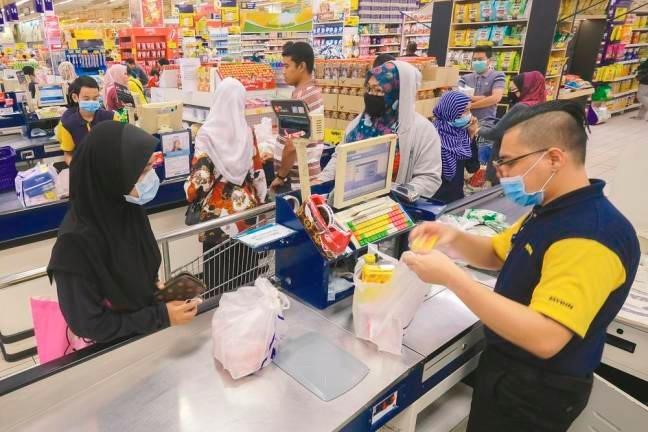
PETALING JAYA: Helping those who have lost their jobs or businesses and keeping the inflation rate below 5% have been singled out as strategies that will improve the people’s purchasing power.
When people have more money to spend, it will give the economy a boost, according to two economists.
Dr Yeah Kim Leng of Sunway University said the loss of livelihood as a result of the Covid-19 pandemic and the subsequent economic fallout have greatly impaired the people’s spending power.
Consumer spending, he said, accounts for 60% of Malaysia’s gross domestic product. “If the people’s purchasing power is not restored quickly, it will deal a serious blow to the economy, impeding its recovery.”
Yeah said it is therefore critical that the government focuses efforts to resuscitate the private sector, but agreed that it is also contingent upon its ability to contain the pandemic more effectively.
“The private sector will see a revival once restrictions on social and economic activities are eased. However, the pace of recovery will depend on how much support the government can provide in terms of fiscal and financial assistance to the most severely affected businesses and households,” he added.
Prime Minister Datuk Seri Ismail Sabri Yaakob had announced on Sunday that the government would focus on restoring well-being and prosperity by amplifying efforts to improve the purchasing power of domestic consumers and to strengthen the role of the private sector as a significant driver of economic growth.
Yeah said that apart from consumer spending, government investments in infrastructure projects to complement private sector spending could also give the economy an additional boost.
“The government can also capitalise on the improving global economy by facilitating export-oriented industries to operate at full capacity and to expand their operations,” he suggested.
Yeah said greater purchasing power would also help to boost foreign and domestic investments, thus creating jobs for the now unemployed skilled labour.
“SME that supply goods and services for such projects will also benefit,” he added.
He said it is also imperative that skills be enhanced and productivity levels raised, leading to increased wages for workers.
“Unemployed graduates and retrenched workers could be retrained to meet new requirements, especially in digitalisation, automation and e-commerce in the post-pandemic economic landscape.”
He said the government could also help the most severely affected SME by offering re-start grants, new loans for working capital and employment subsidies.
Prof Dr K. Kuperan Viswanathan of Universiti Utara Malaysia noted that most people complain that the inflation rate is much higher than that reported by the government.
He said the private sector had always been the significant driver of economic growth in the past but “I do not see that as the new mantra”.
“The government has to continue opening up the economy and allow the private sector to function with limited restrictions vis-a-vis health and safety requirements,” he told theSun.
Kuperan said the government should continue to provide income support and subsidies for the B40 group.
“Keep a tight watch on inflation and ensure supply chains are not disrupted by the movement control orders,” he said.
He explained that higher purchasing power will increase domestic consumption and help boost the GDP. “This will mean that people have more money to spend, thereby benefiting businesses as well,” he said.
“With their revenues boosted, businesses will also have the resources to expand, thereby creating more jobs. This will translate into high economic growth and prosperity for the nation,” he added.
Source: https://www.thesundaily.my/local/more-jobs-lower-inflation-crucial-to-boost-spending-HM8248810

